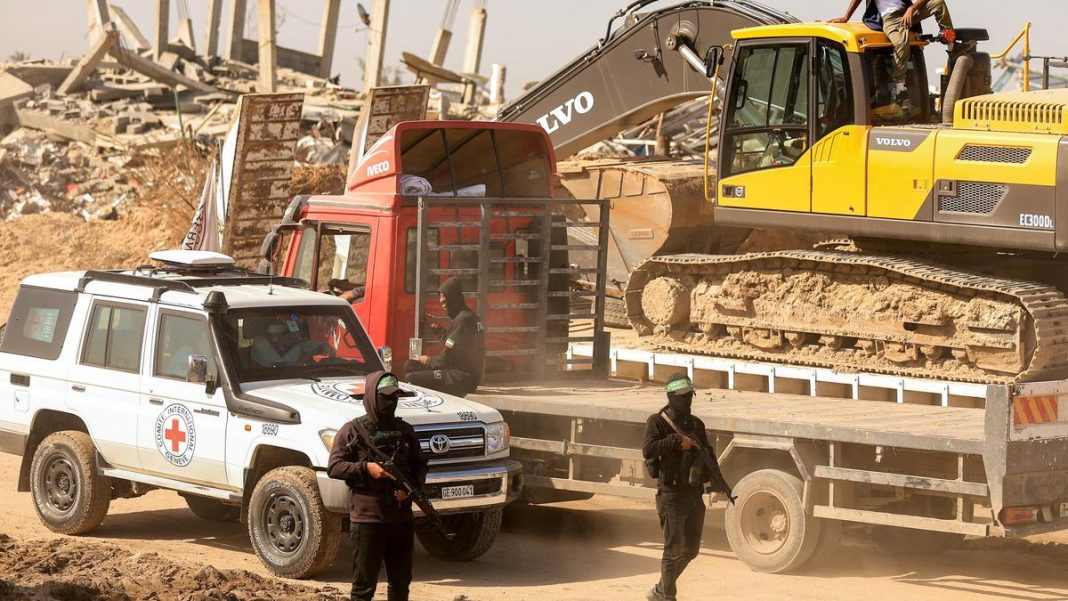The already fragile landscape of peace efforts in the Gaza Strip has been dealt another severe blow following reports of Israeli fire killing four individuals, including children, in the embattled Palestinian territory. This tragic development, coming amidst intensive international negotiations for a ceasefire, has cast a long shadow of doubt over the prospects of de-escalation and humanitarian relief. For nations like India, which advocate for regional stability and a two-state solution, such incidents underscore the immense challenges in achieving lasting peace in the volatile West Asian region.
Renewed Violence Shatters Fragile Hopes
The incident, occurring in a critical period marked by desperate diplomatic pushes, saw four Palestinians reportedly killed in Israeli military actions. Local reports suggest the victims were civilians, including young children, caught in the crossfire or targeted in specific areas. While details remain contested, the immediate consequence is a stark reminder of the continuous peril faced by Gaza’s civilian population, now enduring months of relentless conflict.
This latest surge in violence directly impacts ongoing ceasefire talks, which have seen mediators like Egypt, Qatar, and the United States work tirelessly to bridge the gap between Israel and Hamas. The proposed framework typically involves a temporary halt to hostilities, the release of hostages held by Hamas, and increased humanitarian aid flow into Gaza. However, each act of violence, particularly those resulting in civilian casualties, further erodes trust and complicates the already intricate negotiations. Hamas officials have repeatedly stated that continued Israeli military operations undermine any potential agreement, making it difficult for them to commit to a deal while their people are under attack.
From an Indian perspective, the cycle of violence is particularly concerning. India has consistently called for de-escalation and the protection of civilians, emphasizing the need for both sides to return to the negotiating table. New Delhi’s foreign policy has historically balanced strong ties with both Israel and Palestine, advocating for a peaceful resolution based on the two-state solution. Such incidents not only undermine this pursuit but also exacerbate regional instability, which has broader implications for international trade routes, energy security, and the global economy – all of which directly affect India’s interests.
The Deepening Humanitarian Crisis and Diplomatic Stalemate
Beyond the immediate political ramifications, the human cost of the ongoing conflict in Gaza continues to mount to catastrophic levels. The United Nations and various international aid agencies have repeatedly warned of an impending famine, with over 80% of Gaza’s population displaced and struggling for basic necessities like food, water, and medical supplies. Hospitals are largely non-functional, and infectious diseases are spreading rapidly, creating a public health crisis of unprecedented scale.
The killing of four more individuals, regardless of the circumstances, adds to an already devastating casualty count and intensifies the global outcry for an immediate and permanent ceasefire. Humanitarian organizations on the ground, often operating under perilous conditions, lament the constant setbacks to their life-saving work. “Every life lost deepens the chasm of distrust and pushes the prospects of peace further away,” observed a spokesperson for a leading international humanitarian organization, underscoring the profound human cost and the fragile nature of diplomatic efforts.
Internationally, there is growing impatience with the diplomatic stalemate. Nations worldwide, including India, have called for unimpeded humanitarian access and adherence to international humanitarian law. India has itself dispatched significant humanitarian aid to Gaza, demonstrating its commitment to alleviating suffering. However, such efforts are continuously hampered by the ongoing hostilities, logistical challenges, and the lack of a secure environment for aid distribution.
The international community faces immense pressure to find a breakthrough. The latest fatalities serve as a stark reminder that time is running out for the people of Gaza, and that diplomatic rhetoric must translate into tangible action to halt the violence and ensure humanitarian assistance reaches those who desperately need it. The path to a lasting peace is fraught with challenges, but the alternative is a continued descent into a deeper humanitarian catastrophe.
The latest tragic loss of life in Gaza underscores the urgent need for all parties to commit to a durable ceasefire and prioritize the protection of civilians. As the international community, including India, redoubles its efforts to broker peace, the incident serves as a grim indicator of how precarious the situation remains, constantly threatening to derail even the most concerted diplomatic endeavours. Achieving a lasting peace and ensuring humanitarian relief for Gaza’s besieged population remains a global imperative.




